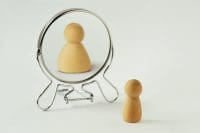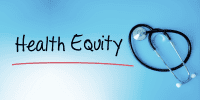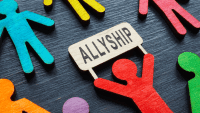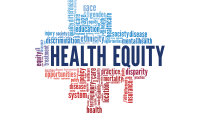I read the following case study online; although I have shortened it considerably, here is the gist of it:
“I made the worst medication error today and feel horrible about it. I want to quit from sadness and embarrassment. I’ve been a nurse for about 10 months. I have been working at the hospital for only about 5 months.
“I had a patient on a lasix drip that was 100 mL total volume: 100 mg in 90 mL, calculated to be given 5 mL/hr. To make a long story short, I infused the medication at 100 mL/hr instead of 5 mL/hr. I was looking at the 100 mg in 90 mL and I was also looking at the 100 mL total volume instead of paying attention to the 5 mL/hr. The charge nurse and I caught the error but the patient already had received 75 mL in a little over 3 hours; it should have been almost 20 hours if it was given correctly.
“We contacted the doctor and he said to just monitor the patient. I filled out an incident report, and we re – started the infusion at the correct dose. I believe I got confused because of all the different numbers on the IV bag, and I was also very busy that night.
“The result of the error was a critical potassium of 2.1. Fortunately, we had a potassium protocol to start potassium IV 50 mL/hr for six bags total and rechecked the leveI.
“I feel dumb and incompetent as a nurse. I feel like my life is ruined. I don’t know what to do. What if nursing just isn’t the profession for me after I’ve worked so hard for it. I’m so distraught.”
Here is what I would say to this nurse: No one ever promised you that you would never make a nursing error. You made an error and did all you possibly could to correct it. You reported the error, you contacted the doctor, and you worked with your charge nurse to make an immediate corrective action. You also analyzed the situation to determine why you made the error. You’ve learned a lesson; perhaps your experience can help keep others from making the same error. You’re a good nurse. Now, the most important thing you must do is to forgive yourself.
One of the vital lessons here is the concept of self-compassion—being warm and understanding toward yourself when you make a mistake, rather than punishing yourself with self-criticism. Self-compassion entails treating oneself with kindness, recognizing one’s shared humanity, and being mindful when considering negative aspects of oneself.
Several recent studies investigated the cognitive and emotional processes by which self-compassionate people deal with unpleasant life events. In the various studies, participants reported on negative events in their daily lives, responded to hypothetical scenarios, reacted to interpersonal feedback, videotaped performances in awkward situations, reflected on mistakes, and judged themselves for what they considered to be immoral behaviors. These studies yielded the following results:
• Self-compassion predicted emotional and cognitive reactions to negative events in everyday life.
• Self-compassion buffered people against negative self-feelings when imagining distressing social events.
• Self-compassion moderated negative emotions after receiving ambivalent feedback.
• Low-self-compassionate people undervalued their videotaped performances relative to observers.
• Self-compassion leads people to acknowledge their role in negative events without feeling overwhelmed with negative emotions.
• The more self-compassionate people are, the less acceptable they rated their own moral transgressions. Moreover, this study measured participants’ willingness to take responsibility for actual choices that participants believed were immoral. Self-compassion seemed to increase rather than decrease people’s willingness to take responsibility for misbehavior.
It’s worth noting that studies found that a sense of ethics and developing a moral compass are essential parts of self-compassion. Ethics is all about how we treat other people and, as a consequence, is closely related to morality—how we determine whether our behavior toward others is good or bad. The point these researchers make—and it’s a good one—is that you also are a human being—and thus, you also deserve to be treated with compassion.
Leah Curtin, RN, ScD(h), FAAN
Executive Editor, Professional Outreach
American Nurse Today
Selected References
Leary MR, Tate EB, Adams CE, Allen AB, Hancock J. Self-compassion and reactions to unpleasant self-relevant events: the implications of treating oneself kindly. J Pers Soc Psychol. 2007;92(5):887-904.
McConnell EA. The role of guilt, shame, and self-compassion in promoting racial justice engagement for white students. 2015. College of Science and Health Theses and Dissertations Paper 106.
Neff K. Self-Compassion: The Proven Power of Being Kind to Yourself. New York, NY: William Morrow Publishing; 2011.
Terrible medication error. Allnurses website. 2013.
Xue W, Zhansheng C , Kai-Tak P , Fei T , Shenghua J. Self-compassion decreases acceptance of own immoral behaviors. Personality and Individual Differences. 2017;106:329-33.



















2 Comments.
Prayers and blessings to this dear nurse who reaches out with broken heart, about a med mistake. You are working shift hours that can be extra challenging. You have taken a humbling mistake and acted quickly to correct for the patient’s very best outcome. You were honest (very important), called on additional counsel, and made your patients well-being a top priority. Please forgive yourself, and move forward by calling into policy a 2-RN check on drip rates, perhaps. (?) A med mistake is so upsetting no matter how many years one is a nurse. You are on my heart!
I am writing about the article Self-Compassion, Mistakes, and Moral Behavior, Vol 12, No. 3, by Leah Curtin. As a Registered Nurse, I have witnessed many errors, and the positive and negative responses to those errors. I am writing this letter in support of promoting self-compassion when those mistakes are made, and helping nurses to learn from the mistakes of others. Nurses are very hard on themselves and that is something that is often overlooked. It is important to realize that we are all human, but that is not always how it is viewed. Nurses have great responsibility on them, and it is always stressed that errors shouldn’t occur if you are doing your job correctly. This plants a fear in nurses to speak up when they have made a mistake. I would like nurses to know that it may not be okay to make a mistake, but it will happen, and when it does, it is important to learn from it and help others to as well. I am one that is very hard on myself when I make a mistake, but I am learning that I need to use it as a learning experience and help others to grow from their mistakes as well.
Many nurses go in to the profession practicing very cautiously, but there are also those that think that mistakes will never happen to them. In the article The “Know It All Nurse” Will Never “Know It All”, by Pamela Kersey, she states that the know it all nurse sabotages trust, respect, and communication, and creates unsafe situations for patients. Therefore, it is so important, no matter how long you have been in the profession, to have an open mind and be willing to learn new things. Learning to accept constructive criticism is important in becoming a more competent nurse. The healthcare field is always changing, and we need to adapt to those changes and take responsibility for any mistakes that are made.
In conclusion, it is so important to have an open mind when caring for patients and to not become a “know it all nurse”. To learn from the mistakes of others, and to help others learn from our mistakes, makes a strong team and ensures the best care for the patient. Helping others and ourselves to use Self-Compassion when mistakes are made is important in growing as a nurse and being confident in our skills. A nurse who is confident in themselves will provide the best patient care.